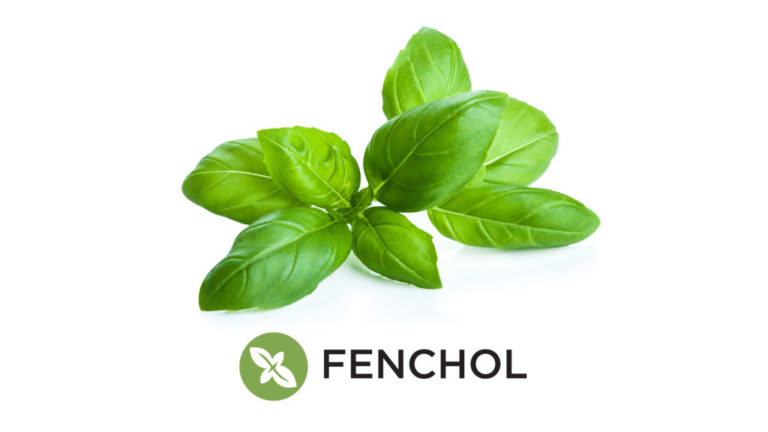 Photo by: Gina Coleman/Weedmaps
Photo by: Gina Coleman/WeedmapsImage lightbox

Fenchol is a monoterpenoid and isomer of borneol frequently used in perfume manufacturing. Possessing a fresh, lemon-lime taste, fenchol is also known for infusing basil with its signature scent. This terpene exhibits antibacterial, antimicrobial and antioxidant properties.
What is fenchol?
Fenchol is a secondary (less common) terpene found in cannabis and prized for its earthy aroma that naturally occurs in basil. The terpene also comprises up to 16% of the volatile oils of certain species of Aster — a genus of plants that produce starlike flowers, such as the purple dome aster. In contrast to terpenes such as geranyl and geraniol, both of which are notably sweet, fenchol possesses a piney, camphor-like flavor. The invigorating scent of fenchol makes it useful as a component of liquid and powder detergents and fabric softeners. The fine-fragrance industry makes more use of the terpene than any other industry, as fenchol is a popular ingredient in perfume.
Fenchol in everyday life
You have experienced fenchol any time you have sprinkled dry basil into a pot of tomato sauce or enjoyed a salad containing fresh basil. Fenchol's aroma may have drifted into your senses if you have held a bouquet of aster flowers. You may also have encountered fenchol when lathering your hair with an herbal shampoo or misting your wrists with citrus body spray.
Therapeutic properties of fenchol
Fenchol has shown efficacy in a number of therapeutic areas, and shows potential as an antibacterial, antimicrobial, and antioxidant agent.
Antibacterial
Fenchol has proven to be effective against a broad spectrum of bacteria, according to a 2007 Turkish study that tested the terpene's efficacy along with 20 others. Researchers compared the terpenes' potency with that of penicillin in fighting 63 diverse bacteria strains. Fenchol and several others were found to inhibit the growth of the bacteria strains, though researchers noted that penicillin exhibited higher levels of antibacterial activity.
Antimicrobial and antioxidant
A 2013 study, published in The Scientific World Journal, tested the potency of the essential oil derived from the leaves of the winged prickly ash plant, a shrub endemic to Asia. The oil was primarily composed of linalool (30.58%), but also contained a significant amount of fenchol (9.43%). The results demonstrated that the essential oil had both antimicrobial and antioxidant properties, and that with further research, it could be a resource to the food and pesticide industries.
Analgesic
A 2014 study by Japanese scientists suggests that fenchol may play a role in pain relief. The authors of this study showed that fenchol (fenchyl alcohol) inhibits an important protein in the body's pain signaling system, the TRPA1 receptor. This study suggests a promising role for fenchol and other monoterpenes in pain relief.
Role of fenchol in cannabis
Banana Kush and OG Kush are cannabis varieties that contain higher-than-average levels of fenchol. As a secondary terpene, fenchol is not found in as many varieties of cannabis as are primary terpenes like myrcene and pinene. Fenchol's effects as an element of cannabis are not well-understood; more research is needed to understand the terpene's contributions to the psychoactive and pain-releiving effects of cannabis.
Bottom line
Refreshing and earthy, fenchol is known for its contributions to the fragrance industry as well as the antibacterial, antimicrobial and analgesic qualities that could make it beneficial in wider applications.
Major contributions from Dr. Adie Rae.

